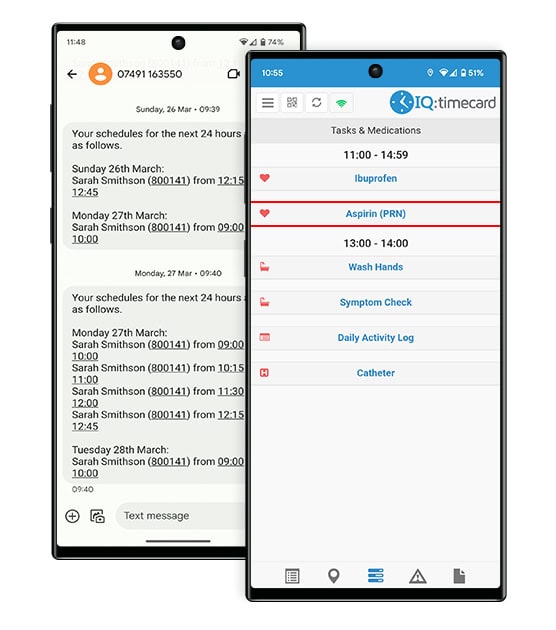
How technology can help carers respond more quickly to the needs of clients
Responsive care is a fundamental component of delivering quality, personalised care. And as is the case with any health care service, one size does not fit all, and a particular client’s home care needs can often change quickly.
Good care delivery often hinges on how quickly a care provider can pivot to emerging or changing needs, but in a sector where carers often work remotely – how can information be shared seamlessly and efficiently?
The answer is care management technology.
How care management software can lead to more responsive care
While care managers and coordinators use the browser-based management component of care software, that’s only half the story. Carers can stay in the loop with client updates via a connected care app on their smart devices.
A dedicated care app can improve care responsiveness in many ways. Primarily, it can enable operational teams and caregivers to communicate important information as the client’s needs change – instantly.
Examples include: changes to visit times or visit lengths, the addition or removal of personal tasks, changes to medication schedules, observations on health problems, client requests or changes to client preferences.
In summary, managers can quickly communicate operational changes to carers, while carers can provide observational feedback to managers during or after a visit.
Giving carers the most up-to-date information when delivering care
Managing home care for people with complex needs or rapidly deteriorating conditions can be challenging. Understanding and communicating changes is crucial to ensure clients are cared for safely and with dignity.

A client may have a doctor’s appointment, or a rapid onset of illness leads to hospitalisation. So, when caring for people in these situations, visits may need to be changed, cancelled, or rescheduled at the last minute. Conversely, a client’s condition may improve or become less reliant on a carer’s intervention.
Instead of hurriedly calling the carer on duty or sending an email, you can use care management software.
Changes to care plans, visit schedules, or any other information are sent immediately to the mobile app, ensuring carers have the most up-to-date information when delivering care. Carers are informed of schedule changes through SMS, email or in-app notification.
The system can also implement notifications to alert carers when there is a change in medication requirements. In this use case, the system highlights a new medication with a red box to ensure that the carer can easily see it.
How communication tools can improve care responsiveness
As well as push notifications, the carer app can also facilitate instant communication between the carer and the care office. This is particularly useful in the event of an emergency or if the client needs to inform a manager about a change of circumstance.
‘Emergency messaging’ is a tool that allows managers to send an alert via text or email to members of staff, individual clients, or all users. Typically, managers deploy an emergency message when something happens that directly impacts the delivery of care. E.g., a dangerous weather event may disrupt travel for carers, or inform a client that a carer will be late for an appointment.
‘Inbound messaging’ can be used by carers to communicate directly with the care office. E.g. when a carer has been held at a visit due to having to wait for an ambulance and needs to let the office know to arrange cover. Inbound messaging is particularly useful as it is secure, dedicated, and auditable – which is important for sensitive communications.
Want to know more about how IQ:caremanager can help improve care delivery? Head over to our Deliver page.